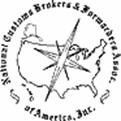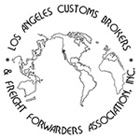What is a Freight Forwarder?
An international freight forwarder is an agent for the exporter and can move cargo from "dock-to-door", providing several significant services such as:
- Advising on exporting costs including freight costs, port charges, consular fees, costs of special documentation, insurance costs and freight handling fees;
- Preparing and filing required export documentation such as the bill of lading and routing appropriate documents to the seller, the buyer or a paying bank;
- Advising on the most appropriate mode of cargo transport and making arrangements to pack and load the cargo;
- Reserving the necessary cargo space on a vessel, aircraft, train, or truck.
- Making arrangements with overseas customs brokers to ensure that the goods and documents comply with customs regulations.
In the U.S., companies that handle international ocean freight must be licensed by the Federal Maritime Commission as Ocean Transportation Intermediaries. An Ocean Transportation Intermediary is either an ocean freight forwarder or a non-vessel operating common carrier (NVOCC). An ocean freight forwarder is an individual or company in the United States that dispatches shipments from the United States via common carriers and books or otherwise arranges space for those shipments on behalf of shippers. Ocean freight forwarders also prepare and process the documentation and perform related activities pertaining to those shipments. An NVOCC is a common carrier that holds itself out to the public to provide ocean transportation, issues its own house bills of lading or equivalent document, but does not operate the vessels by which ocean transportation is provided. Companies may obtain both licenses and may act in both capacities even on the same shipment. The U.S. legal distinction between the two is that a freight forwarder acts as the agent of a principal (typically a shipper or consignee or carrier) and the NVOCC is a transportation company (carrier) that is physically responsible for the carriage of goods and acts as its own principal. Companies acting strictly as an Ocean Freight Forwarder typically do not issue their own contract of carriage (bill of lading) and as agent are generally not liable for physical loss or damage to cargo except in cases of errors in judgment or paperwork or fiduciary responsibility. NVOCC's act as ocean freight carrier and issue their own bill of lading and are legally responsible for physical loss or damage in accordance with the terms and conditions of their bill of lading and tariff. Similar to other countries, freight forwarders that handle international air freight will frequently be accredited with the International Air Transport Association (IATA) as a cargo agent however they must obtain an Indirect Air Carrier (IAC) certification from the Department of Homeland Security (DHS).
We, at Priority Import Export Service, Inc. have our own in-house international freight forwarder to assist our clients with seamless, cost effective international transportation, marine cargo insurance as well as shipment tracking and follow up. Having international freight forwarding and Customs brokerage under one roof is the most efficient way for importers to have a single point of contact rather than several entities to deal with.



Important Links